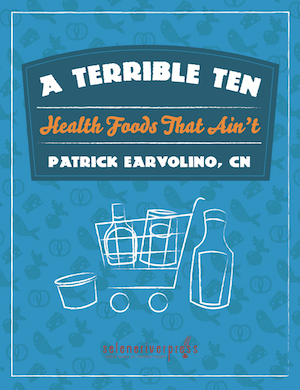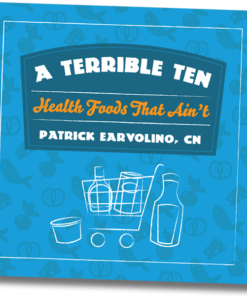By Fred Miller, DDS

[The following is a transcription of the original Archives document. To view or download the original document, click here.]
Saving Your Face
Kids in College Eating Their Fill of Candy, Sodas, and Hot Dogs Pay Through the Teeth[spacer height=”20px”]
There is never a Christmas or Easter vacation that I do not drill and fill some entirely preventable cavities in the teeth of students back home for their first college holiday. Year after year, these young men and women who had two or three fillings (sometimes none at all) up until the time they left home become my increasingly frequent patients. Fillings and inlays, porcelain work, extractions, gold bridges, and dentures—all the delicate restorative and replacement work of which an American dentist is capable finds its way year by year into their mouths.
And we dentists take pride in making our restorations the best, most durable work possible. But ninety percent of them could be avoided if these presumably bright young men and women did not acquire the destructive food habits that break themselves down—and, simultaneously, their dads up—for the immediate advantage of the dentist.
Don’t get me wrong. Dentists are necessary—very necessary—and American dentistry is far superior to any other in the world. Even so, nature makes better teeth than dentists make, and it’s been doing it for eons. And men could keep the teeth nature gave them if they used their intelligence about it.
I make it a flat statement of fact that, with the few exceptions that must always be allowed for, there is no good reason why a man should not take to his grave with him the vital teeth he now has in his mouth. (Certain metabolic and glandular disturbances do make for dental deterioration, but in general a man is a fool to try to blame the decay in his teeth on these comparatively rare disturbances. Usually he is the aggressive “culprit” who brings dental caries upon himself and not a helpless “victim” of it.)
Yet what are the conditions in the mouths of adult Americans today? First, so many men are being rejected from the [U.S.] Army because of bad teeth that they are not only the highest single cause for rejection (nearly a fourth of all rejections according to the last statistics I have seen) but an indication of disaster ahead unless something drastic is accomplished.
When you stop to consider the age of these draftees and the army’s low requirements (“a minimum of three serviceable natural masticating teeth above and three below opposing and three serviceable natural incisors above and three below opposing”), you get some idea of the appalling dental health of under-middle-age American men.
Second, the average American loses all his teeth at forty-nine and has full upper and lower dentures (false teeth to you) made. This means plenty of work for me and other denture makers, just as destructive wars means increased activity for the armament manufacturers. And I suppose it is the same streak of sheer stupidity in mankind that makes these two kinds of “good business” possible. But you can easily solve the problem of preserving your teeth individually—something you are not able to do individually about preserving the peace.
I know very well the minute I say “diet” a certain percentage of you will want to turn the page abruptly. But hold on now—wait a moment longer. You may want to think it is the kind of teeth you happen to have in your mouth at eighteen or twenty-eight that determines whether you will have any at all at fifty. But you’re all wrong there. True, what you have in your mouth is important. But what you put into it is more important by far.
Moreover, your mouth is both the gateway to health and an immediate barometer of health for you. A decayed tooth or bleeding gums in a young man or a middle-aged man is an indication of a bodily condition that gradually, imperceptibly but inevitably, is leading him toward one of the degenerative diseases of middle and later life—those diseases that, despite all of medicine’s boasted progress, are increasing at a truly terrifying rate in America.
That is why I keep myself poorer than I need be trying to educate these young men—young idiots, I call them—who bring me as many as eight spots of decayed enamel after their first three months in college. These are men who never needed a half-dozen fillings in all their lives before. Cut loose from home ties for the first time, they are at the mercy of food providers whose first aim is profit from food pleasures rather than physical well-being from food pleasures, as in good homes today.
They have had for the first time their fill of white-roll hamburgers and hot dogs, hard candies (tooth destroyers, I call them), chocolate bars, sodas, and sundaes—also of headaches and aspirin, constipation, and laxatives. They say so quite frankly and think they’ve had one “helluva” good time. And it all puts money in my pocket. But…
In a few years, it’s going to put money in some physician’s pocket too—along with [causing] discomforts to their own bodies from which they won’t find one “helluva” good time. For even if nature is wonderful, she isn’t wonderful enough to protect the more delicate tissues and organs of the body from the kind of dietary abuses that eat holes in tooth enamel.
Tooth decay is a sign of illness! Every time a decayed tooth appears and keeps on decaying, it is nature’s signal that a disease-breeding condition has been created and is continuing in the body.
Don’t forget that when you have a spot of tooth decay that gradually gets a little bigger and a little bigger, it is because your daily diet is favorable to the growth of bacteria that produce acid that eats into the body’s hardest substance, tooth enamel, and is favorable as well to the decreased resistance of a live tooth, which, with proper nourishment, would ably resist bacterial attack.
If, when decay begins, you made proper dietary corrections, decay would stop. Moreover, if the enamel had been eaten through so that the dentin underneath had been reached, the dentin would promptly begin to protect itself through fresh mineralization where the decay had touched it—“arrested decay” we call it—if, I repeat, proper dietary corrections had been made. Oh yes, nature is a wonderful dentist. Given the proper equipment, she’ll do everything but fill up the hole for you.
Now, I grant you that the makeup and structure of the teeth you happen to have are a strong factor in what is going to happen to them in the next ten to fifty years. If you start out with a complete set of permanent teeth and have not lost any of them, your prospects are far above average. But suppose they are below, rather than above, average. Well, suppose you come from a family where there is a tendency to tuberculosis, and you’ve been warned that your lungs are susceptible. That does not mean you cannot continue to be as free of tuberculosis as the man without your handicap. It does mean, however, that you should exercise a little more intelligence about living in ways he need give no thought to.
So don’t blame your mother for what happens to your vital teeth from now on even if they seem to you to be below average. I’m sick of reading, “The time to lay the foundation for tooth health is before you were born”—or when you were three or six or eight. Of course those periods were important. But they are not important for you now. You cannot select your parents or grandparents. That’s water over the dam. The time for you to lay the foundation that determines whether you’ll be putting your teeth in the water glass every night is now.
According to her lights, your mother probably did the best for you she knew how. But what about your children? Pardon me, but that’s different! You know—or ought to know—facts your mother never had a chance to know. And fathers pass on to a child part of its dental inheritance. The structure of your unborn child’s dental arches—whether its teeth will be crooked and crowded or well-spaced in adequate dental arches—that solid fact of the future is being effected by the foundations for tooth health you lay for yourself now. So let’s stop blaming it on our mothers and think of our children instead.
At least 95 percent of American children now have constricted arches, which mean [the development of] irregular teeth [that] require orthodontia (straightening to you) to make them serve and look right. Fathers as well as mothers help bring this handicap on children.
So, especially if you are under a dental handicap, you should begin to give your teeth proper care and nourishment immediately. You cannot do this, however, if you continue to be a sucker for the group of men who are taking the vitamins and minerals out of essential food products primarily for their own financial gain. It is what these men remove and discard that teeth need, that they must have for health, and that the rest of the body must have for health too.
In the process of making white flour and refined cereals, for instance, practically all the vitamins and a good half of the minerals are removed from the wheat, so that we are given the lifeless products that have America mercilessly by the throat right now.
These products have created in millions and millions of people conditions favorable to disease. Sticking back in a paltry three synthetically made, drugstore vitamins of the known eight to ten of the B-complex alone is not going to make a hoot of difference about the needed minerals removed from white flour and other processed cereals that load down the American breakfast, lunch, and supper tables—to say nothing of the still missing vitamins. Yet the “fact” [of enrichment of processed foods with synthetic vitamins] was announced recently in one of our most widely circulated American magazines as an “epochal advance.”
After twenty-five years as a practicing dentist, I can say emphatically that whenever patients have cooperated with me honestly—and I have never been without a group doing just this—in avoiding devitalized, demineralized foods and taking a well-balanced diet of high mineral and vitamin content regularly, and they have come to me with regularity to see that small spots of decay are properly handled in their early stage, tooth decay has decreased so decidedly that it has disappeared completely for years at a stretch. I know that other dentists are having this same result from similar cooperative groups of patients.
If you want tooth health, the main thing nature asks of you is the kind of nourishment that protects exposed tooth enamel from these initial entries at which bacteria begin their destructive work. She asks you to save your face by saving the face of your teeth, sir, by proper eating of natural foods that do not foster destructive bacteria and deprive your vital teeth of needed elements.
You may well ask what I mean by “eating properly.” A lot of authorities have filled a lot of books on this point—interesting books filled with facts the average man does not have time to assimilate. But what it all amounts to is that every adult ought to have daily the following:
- A minimum of a pint of milk.
- A generous portion (or two) of fresh citrus fruits and/or freshly opened tomato juice, vine-ripened tomatoes, or crisp, fresh cabbage.
- A generous portion of fresh, green, leafy vegetables (the greener in color, the better).
- An egg.
- A serving of meat (the organs once a week) or cheese. (If you take a quart of milk per day, you’ll need less meat, which seems better for some people.)
- A half-dozen helpings of other fruits and vegetables, some of them raw and including one potato.
- Several pats of butter.
Then, when you are sure you are going to have all that, eat enough whole grain bread or whole wheat toast to produce energy for the day’s work and none left over to make you overweight.
In addition [eat the following as well]:
- Some sweets in their natural forms—honey, figs, dates, brown and maple sugar, etc.
- Cod-liver oil (for vitamin D)—so very essential for children while they are building teeth. This may or may not be essential for adults. Unless you are exposed to direct sunlight on your skin a lot, there is no reason why you should not be on the safe side with some vitamin D capsules in the winter. (It is very difficult to get enough vitamin D in food other than from fish oils.)
(Note: The above diet gives a variety especially essential to Americans, who are now consuming some foods, possibly many foods, grown in mineral-impoverished, improperly fertilized soils. Safety lies only in variety.)
That is all there is to a good diet for tooth health, and it covers other health needs too. You can put your football team on this dietary to their advantage. Their trainer knows that. The pastries, cakes, and other manufactured sweets that form so great a part of the typical American dietary should be a rare occurrence—if you still think they should occur at all.
As for white flour products, hogs, guinea pigs, white mice, and worms cannot thrive on them, so why should you try to? But if you must eat them—or rather if you think you must—then cut them to a minimum and increase your milk and green, leafy vegetables daily to make up for the vitamins and minerals you pay the flour and sugar interest to remove for you.
In twenty-five years of practice, I have never seen such a diet fail to preserve teeth—teeth that in many cases had been highly susceptible to decay. Twenty years ago, a pretty young neighbor of mine was getting ready to be married. As part of her trousseau, she came to me to have the dental work done that she so badly needed. Although only twenty-one, she had to have an upper partial denture to supply all but seven front teeth. Two lower molars had been lost, and a number of inlays were needed. Her husband had to have some fifteen or sixteen gold inlays. The sum total of teeth in the mouths of their four parents was zero. All had full upper and lower dentures.
This young couple took my advice about proper nutrition to heart. So much to heart that there has never been a loaf of white bread or any white sugar on their table. For eighteen years this conscientious mother has baked every loaf of whole wheat bread this family has eaten. Each of them today has teeth so nearly as they were twenty years ago that it is not worthwhile to mention the changes. Their two children, boys of sixteen and fourteen now, each have a perfect set of teeth, which replaced baby teeth that served their purpose for eleven years and then came out without a single spot of decay.
So much for dental inheritance and teeth that crumble easily!
There is another young man who is a senior at Harvard this year. Each of his two sisters and an older brother had brought home considerable approximal decay (i.e., decay between the teeth) from their first year at college, so I made a bet with the younger boy that he would do the same thing, although I would tell him how to prevent it.
I said, “You’ll have to eat whatever they give you at Harvard, but you can do this much if you make up your mind to it and exercise intelligence in food selection: No refined or processed cereals. No candy. Buy orange or tomato juice when you find yourself at a soda fountain. Keep fruit in your room. Lots of milk and vegetables and fruit. Even with dormitory food, that will keep you safe.”
Well, he is the only young man I have ever seen go through college without a cavity between his teeth. I’ll wager he is the only American-born one in Harvard today. It can be done! And men should realize that it ought to be done, before they stiffen up from other mineral and vitamin deficiency diseases augured by their so-called “normal” tooth decay.
Tooth decay is not normal! It is a sign of malnutrition, and it is caused in all but exceptional cases by wrong eating. Primitive tribes who have never seen the white man’s (I refuse to call him civilized) refined sugars and grains have well-developed heads and dental arches containing perfect teeth, set regularly, except in those rare instances where other deficiencies exist. But primitive tribes are pretty wise in getting what their bodies need.
The Eskimo, for example, know enough to chew the bones of and eat many of the organs of the fish and animals that form so great a part of their diet in order to give themselves the wherewithal for perfect teeth in sound, healthy bodies. And they have them, too. Or rather they had them, until “civilized” white men started to make refined grains and sugars available to them. And this has been the experience of not only the Eskimo but of tribe after tribe of primitives the world over.
I admit frankly that some of the facts about tooth decay and its relationship to food are still eluding the scientists. But while science may not know the minute mechanism of dental caries, it does know the factors necessary to control it. Of course there is always controversy, and some folks are always down on the things they are not up on. But the fact remains that the very groups who are still offering opposing theories agree that a well-balanced diet, containing the requisite carbohydrates, proteins, and fats plus enough quantity and variety of minerals and vitamins, is exceedingly effective in preventing and combating tooth decay. As long as they agree on that, why shouldn’t the layman take advantage of it?
The six best doctors, you’ll agree,
and no one can deny it,
Are sunshine, water, rest, and air,
exercise and diet.
You agree with the first five. Why not exercise your intelligence on the sixth one?
Go to your dentist now and have him clean up every spot of decay in your mouth. Have your teeth cleaned and checked periodically. Try out a balanced diet of natural foods, as suggested a few paragraphs back, for a year. And if you do not register a decided lack of tooth decay in that year, you’ll be a brand new experience to me.
And don’t worry about the dentists not having enough to do. There is enough dental work that needs to be done in the United States right now in salvaging dental wrecks and dental cripples to keep all of our American dentists busy every day for the rest of our lives.
Help us educate a tooth-sick population to the fact that they can cut down their dental bills tremendously by coming to us in time and cooperating with us for health. And don’t forget, it takes nature twenty-five years to build a perfect set of teeth. Your job is to preserve a job that nature has so carefully done over this long period of time.
By Fred D. Miller, DDS. Natural Food and Farming, Vol. 2, No. 2, May 1955. Official Publication of Natural Food Associates, Inc. Copyright 1941, Esquire, Inc.
 Get self-health education, nutrition resources, and a FREE copy of A Terrible Ten: Health Foods That Ain't ebook.
Get self-health education, nutrition resources, and a FREE copy of A Terrible Ten: Health Foods That Ain't ebook.

